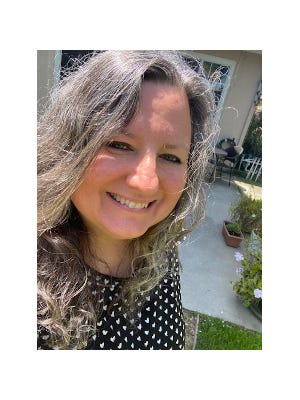Engineers Share Their Inspirations
These engineers reveal what prompted them to pursue a lifetime of problem solving.
March 21, 2024

At a Glance
- We asked engineers like you to share their inspirations for pursuing engineering careers
- Taking things apart and understanding how they work were common pastimes in youth
To celebrate the amazing solutions that engineers devise every day (and to mark Engineers Week and World Engineering Day), Design News asked on social media, What inspired you to become an engineer? And, What makes you love engineering?
We received several inspiring stories that demonstrate the tenacious curiosity and problem-solving mindset of engineers. Check out our LinkedIn post and the comments we received, or read our recap below. Maybe you’ll find anecdotes similar to your own!
Several engineers shared that they started their “engineering” journeys early in life.
Timothy Adu, hardware development technical lead for Woodsense, shared that “it all began on my 10th birthday. My dad had gotten me a Sega MegaDrive II video game console and a game [cartridge] with about a few dozen games (the good old days). I was so fascinated at the idea of using my controller to make things move on the screen. How the different buttons made different things happen, the level and screen transitions....It seemed like magic at the time. But it didn't stop there. I took the console, controller, and game [cartridge] apart the same day. Took me hours to put it back together, with my dad's help. The curiosity grew from here, and here I am, more than 20 years later—the [curiosity] blossomed into a career in engineering.”
Aswath S., an embedded software engineer with vTitan, posted that “growing up with lots of documentaries and biopics on #discovery and #natgeo channels gave enough motivation to break household items apart and curiosity to see if I can Frankenstein them together.”
Jacob Beningo, an embedded software consultant, Design News columnist, and CEC instructor, shared: “I've always been interested in how things work and creating new things. I can recall being a ~5 years old and purposely putting my he-man toys into the VCR so that my Dad was forced to take it apart to retrieve them. All the components, magnetic head, etc., were fascinating. How did all those things work together to make a picture on the screen?
“Movies were also an unlikely source that got me interested in engineering,” Beningo continued. “For example, movies like Short Circuit, Back to the Future, and Explorers exposed me to the idea of circuit boards, programming, and innovation. How did the characters build the flux capacitor, an intelligent robot, or flying machines?”
Peter Pupalaikis, an electrical engineer and founding member and director of Signal Integrity, posted that “around 1975, (when I was, cough, a young boy) my father was driving me somewhere and he told me he had to stop by a friend's house to ‘fix his computer.’ We arrived with an oscilloscope, a chip puller, and a large box with drawers full of TTL logic gates. My father opened the lid on the computer, which contained about fifty socketed DIP packaged logic gates, and probed around with the oscilloscope, paying attention to the numbers on the IC packages. At one point, he turned off the computer, pulled out an IC, rummaged through his box of parts, and replaced the IC. When he turned on the computer, it was now working. It was a work of complete magic and wizardry and I told myself that someday, I want to be that skilled to be able to pull that off. That was my beginning.”
Max Maxfield, a freelance engineer and columnist for Design News, posted that “I spent my childhood taking things apart. I became an engineer [to] learn how to put them back together again LOL. Seriously, I wanted to work on things like robots.”
And Christopher Scholz, director of marketing and product management of Hioki USA Corp., posted that “my engineering career kicked off at the ripe old age of five days, thanks to a well-meaning (but misguided) attempt of my 18-month-old brother to feed me a nut. That event set me on a path of problem-solving and innovation.”
Don Wilcher, director of manufacturing and technology at Jefferson State Community College, Design News columnist, and CEC instructor, shared that “as a child, I enjoyed going to the library and reading industrial arts and crafts books. I was fascinated by the projects and wanted to make them. Some projects that caught my eye were making electrical light and fan devices, paper sculpturing, wood carving, and drawing.
But Wilcher said that “engineering did not occur as a career as I was working on my Associate of Applied Science degree in Electrical-Electronics Technology at Henry Ford Community College. . . . While having lunch in the student cafeteria, I was explaining to a friend of mine about wanting to design electronic circuits and devices. This student, who was an Electrical Engineering major stated, that pursuing an engineering degree will allow you to learn how to design such circuits and devices. It was at that point that I decided to major in Electrical Engineering.
“Creativity, problem-solving, and playing with cool electronic components, circuits, and systems. I wanted to work in an R&D lab designing and building sophisticated devices and systems using electronics. These activities are what attracted me to the field,” Wilcher added.
Similarly, Maxfield shifted gears while in school. “On the advice of my school career advisor, I started a degree in electronics, but found it to be too theoretical (calculating the angular momentum of electrons is something I can do as a hobby)—so I transitioned to a degree in Control Engineering, which was much more involved in building things that did things (occasionally things you wanted your things to do). . . ”
Perry Parendo, owner of Perry's Solutions and Design News columnist, said that “engineering was a path for me because I always thought there would be a better way of doing things. Being innovative and creating new products was my drive.” He also shared a video explaining why he started his consulting business, which helps companies develop products.
Once inspired, these engineers shared that their love of finding solutions continues throughout their lives and careers. “Even now, I still feel that ‘child-like excitement’ when I can get an LED to blink,” Adu wrote. “It's so darn simple, yet so satisfying. The ‘process’ is by far the best part of any engineering endeavour—generating an idea, rationalizing it, building it, testing it, and seeing it work in the real world—nothing beats that feeling.”
Added Beningo: “Today, as an engineer, there's nothing more satisfying than figuring out how something works, and then sharing that knowledge so that someone smarter can use it to build things that make a difference.”
Maxfield sums up the value of engineering nicely: “I don't want to sound soppy, but I'm proud to be an engineer—I tell my friends (well, I would tell them if I had any) that, if it wasn't for engineers, they wouldn't have electric lights or hot and cold running water or fridges, microwaves, television sets, and those things you use to remove unwanted hair from your nose and ears. It's hard for them to argue with logic like that!”
Everyone who commented before March 5 was entered into a drawing for a chance to win a $50 Amazon Gift Card! Our winner was Peter Pupalaikis!
We thank all these engineers for posting their stories! If you'd like to share your own story, follow us and share your story on LinkedIn, X, or Facebook or send an email to [email protected].
About the Author(s)
You May Also Like





